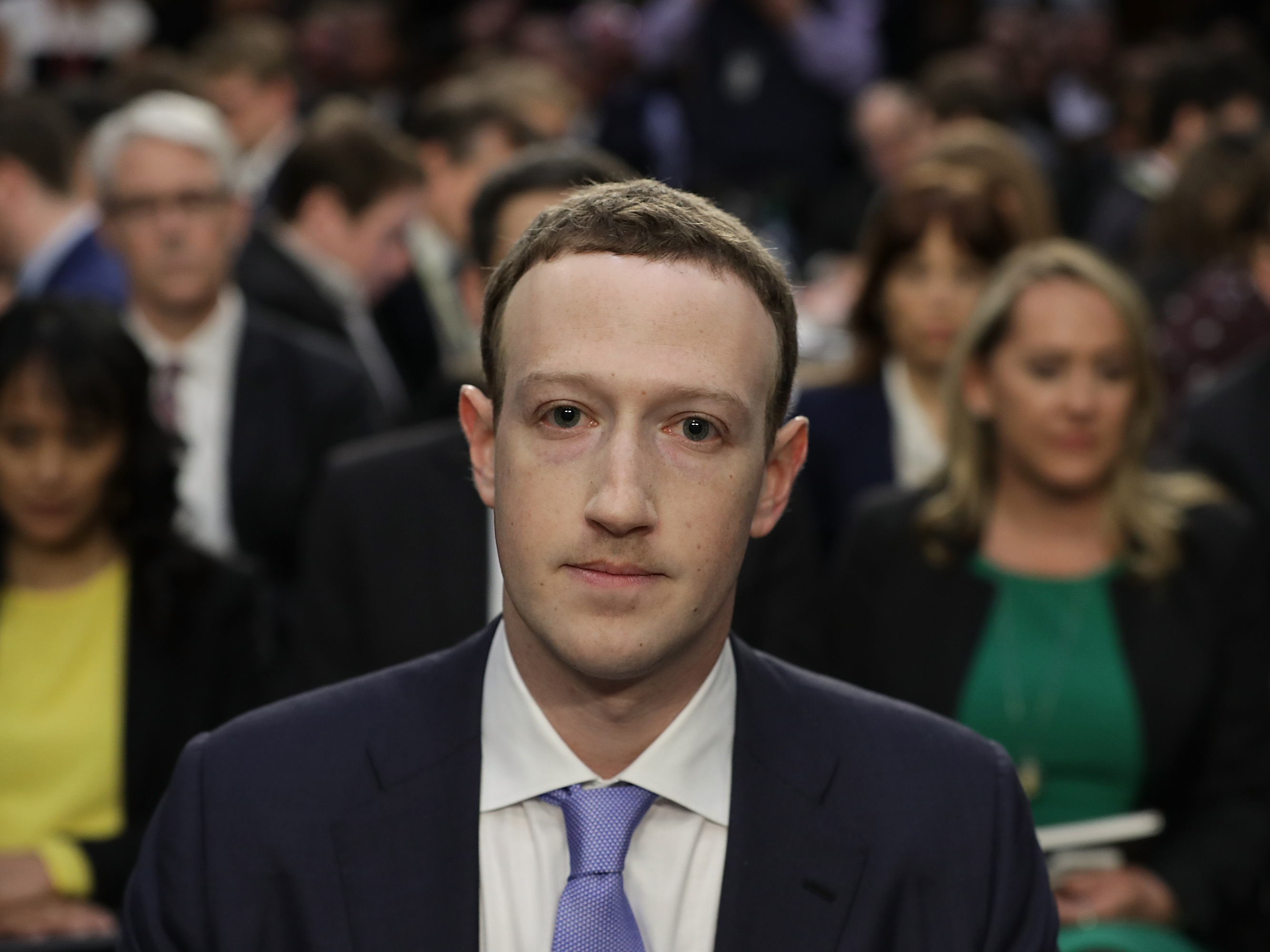- Facebook CEO Mark Zuckerberg testified before the House Financial Services Committee on Wednesday to answer questions from lawmakers about its ambitions in the finance sector through the Libra currency it announced earlier this year.
- The hearing comes after key partners like Paypal, Visa, and Mastercard backed out of the initiative earlier this month following heavy scrutiny of the project from lawmakers.
- Lawmakers grilled Zuckerberg on a range of issues, such as whether Facebook should be trusted to handle financial data, Zuckerberg’s stance on free speech, why Facebook wants to develop a new digital currency instead of using the dollar, and how Facebook is working with regulators and lawmakers.
- Zuckerberg said Facebook would consider dropping out of the Libra project eventually if the association, which governs the system, moved forward with it in a way that the company wasn’t comfortable with.
- Zuckerberg was also pressed on the company’s diversity and inclusion efforts, with Ohio Congresswoman Joyce Beatty skewering Zuckerberg on his inability to answer such questions.
Facebook CEO Mark Zuckerberg testified before the House Financial Services Committee on Wednesday, where lawmakers grilled him about the Libra global currency and payments network the company previously announced. Zuckerberg was also asked to address issues relating to allegations of advertising discrimination on its platform, how it interprets freedom of speech, and diversity within the company.
The committee questioned Zuckerberg on issues such as whether Facebook should be trusted to handle financial data, why Facebook wants to develop a new digital currency instead of using the dollar, how Facebook is working with regulators and lawmakers, and whether or not it’s willing to shelve the project if necessary – concerns that have been mounting since Libra was announced. Zuckerberg was also asked about issues relating to Facebook in general, such as how it’s preventing ad discrimination and the lack of diversity within Facebook and the companies it works with.
The hearing comes at a pivotal time for the Libra project; earlier this month, several early partners dropped out of the effort, including payments and finance firms Visa, Mastercard, and PayPal. Shortly thereafter, the remaining members of the Libra Association – the consortium of 21 firms that will govern the network and currency – met to formalize the organization’s council, elect a board of directors, and appoint members of its executive team. The move indicated that the plan was moving full steam ahead despite heavy scrutiny from lawmakers and the exit of several key founding members.
In his opening testimony, which was made public on Tuesday, Zuckerberg said his company would not participate in rolling out Libra until all regulation concerns have been met. Chairwoman of the committee and Congresswoman Maxine Waters (D-CA) pressed Facebook executive David Marcus on this point during a previous hearing back in July, and did not interpret his answer as a commitment back then.
“Facebook will not be a part of launching the Libra payments system anywhere in the world unless all US regulators approve it,” Zuckerberg said in his prepared testimony. “And we support Libra delaying its launch until it has fully addressed US regulatory concerns.”
In her opening remarks, Waters once again called for a moratorium on the project until Congress can examine the issues that come with a large tech firm like Facebook being involved in the development of a digital currency. She urged Facebook to fix the company's problems before expanding into a new industry - highlighting issues ranging from a lack of diversity in Facebook's leadership to its failure to protect consumer data. She also criticized the company's decision not to fact-check political ads, saying that it could lead to voter suppression.
"Your claim to promote freedom of speech does not ring true," Waters said, adding that it seems like Zuckerberg believes he's above the law and that such concerns raise a "serious discussion" about whether Facebook should be broken up.
Throughout the hearing, Zuckerberg managed to answer some of the lawmakers' questions, such as how Facebook may eventually benefit from Libra and committing that it will not move forward with any launch until proper regulatory requirements are met.
But it also highlighted another problem that officials have taken issue with - that there are many unanswered questions about Facebook's platform and its stance on freedom of expression that Zuckerberg wasn't able to clearly answer. In particular, Zuckerberg struggled with questions about the company's policy for fact-checking political advertisements and its efforts around diversity and inclusion.
Facebook's ambitions in financial services
During the first hour of the hearing, lawmakers probed Zuckerberg on a variety of concerns about Libra and Facebook in general. Such issues that were brought up include the recently announced policy that Facebook won't fact-check political ads, the departure of several Libra Association founding members, the proliferation of child sex abuse material on Facebook, and Facebook's decision to share data with messaging app WhatsApp following its acquisition despite initially telling European regulators that it wouldn't do so.
That latter point is particularly important considering Facebook has said that no data from Calibra, its subsidiary wallet app for Libra, would be shared with the social network. When Congresswoman Nydia M. Velázquez asked Zuckerberg if he learned that he should not lie based on the decision to share data with WhatsApp - for which Facebook was fined $122 million in 2017 - he responded by saying he disagreed with the characterization.
When asked why he believed partners such as Paypal, Visa, and Mastercard abandoned Libra, Zuckerberg replied that he believes it's because it's "a risky project" that has come under heavy scrutiny.
How Facebook and the Libra Association will work with regulators and Congress was a major theme during the hearing. When asked if he would be willing to stop the project if he sees that it can't go forward anymore, Zuckerberg indicated that he would be open to pulling Facebook out of the effort. "If I feel like Facebook can't be part of it keeping with the principles I laid out, then Facebook won't be a part of it," he said.
Zuckerberg later clarified when answering a question from Rep. Scott Tipton of Colorado that he meant Facebook may pull out if the independent association decided to move forward with something that the social giant wasn't comfortable with. He added that Facebook is currently aligned with the association's intentions to ensure that Libra receives the necessary approval.
As the hearing progressed, the committee pressed Zuckerberg for more specifics about Libra, including how Facebook would benefit from the system. The Libra Association is a not-for-profit organization, and until this point it's been unclear precisely how Facebook may profit from Libra if at all.
Zuckerberg said Libra could eventually boost the value of its advertising product when replying to a question from Congressman David Kustoff of Tennessee. If customers are able to transact directly though Facebook's ad product in addition to just finding businesses that people want to interact with, Zuckerberg said he would "expect that over time that would lead to higher prices for ads."
The Facebook CEO said in his prepared testimony that a system like Libra could be critical to "extend America's financial leadership." That left several representatives wondering why the Libra Association would be headquartered in Switzerland, not the United States. Some committee members also expressed concern that basing the operation in Switzerland would make it more challenging for the United States to impose regulations.
Zuckerberg responded by pointing out that many other international organizations are based there. Since the association is an international organization, it therefore made sense to host it outside of the US. When asked whether he would consider moving the association to the US, Zuckerberg said that he could not comment on behalf of the organization. He did say, however, that Facebook's investments in the Libra project - namely its Calibra subsidiary - would be based in the US.
Diversity, inclusion, and the working conditions of Facebook's contractors
Several members of the committee also grilled Zuckerberg on details regarding the company's diversity and inclusion efforts. Ohio Congresswoman Joyce Beatty skewered Zuckerberg on his inability to answer questions about whether or not the company works with companies and law firms that have diverse leadership.
When she quizzed Zuckerberg on who's on Facebook's civil rights task force - to which he replied the company's chief operating officer Sheryl Sandberg - Beatty pointed out that Sandberg doesn't have much of a background in civil rights.
"We know Sheryl's not really civil rights," she said. "I'm trying to help you here. She's your COO and I don't think there's anything, and I know Sheryl well, about civil rights in her background."
Beatty also ripped into Zuckerberg for not knowing the firm that Facebook employs for dealing with civil rights-related issues.
"This is what's so frustrating to me," she said. "It's almost like you think this is a joke, when you have ruined the lives of many people."
She ended her questioning by calling Zuckerberg's lack of answers "appalling and disgusting."
In addition to addressing diversity and inclusion at Facebook, the committee touched on another issue within the company - the working conditions that its contracted content moderators are subject to. Reports from The Verge have highlighted the troubling working conditions Facebook's content moderation contractors endure, which involves watching disturbing content for hours during a shift. Such contractors are only provided with counseling during their time at the company.
Representative Katie Porter of California asked the Facebook CEO to commit to spending one hour a day for the next year watching the videos that content moderators must view, while only accessing the same benefits they receive. Zuckerberg's attempt to respond was cut short, but he said that he wasn't sure if "it would best serve his community."
Allegations about the abuse of Facebook's advertising platform and its impact on the housing sector
Facebook's impact on the housing sector was also addressed during the hearing in light of complaints that Washington, DC-based watchdog the Housing Rights Initiative have filed. The complaint alleges that housing companies used Facebook's advertising tools to discriminate against prospective tenants, and that the social network's algorithms disproportionately showed ads to younger users.
When asked if Facebook would comply with subpoena and document requests Facebook may receive seeking information about how housing companies may have discriminated, Zuckerberg said it would. But when pressed on whether or not the company would produce information about the algorithms it uses to decide which ads users receive, Zuckerberg didn't provide a direct answer. He responded by saying that it has always been against Facebook's policies to use its ad platform and other products for discrimination.
By the end of the nearly six-hour-long hearing, policy makers were still left with many unanswered questions about how Libra will work, how it might help those in need of financial services, and Facebook's general policies regarding free speech and personal privacy among other issues. "I hope you have learned today just how many concerns and questions members of Congress and the public have not just with the Libra project," Waters said in her closing remarks.

